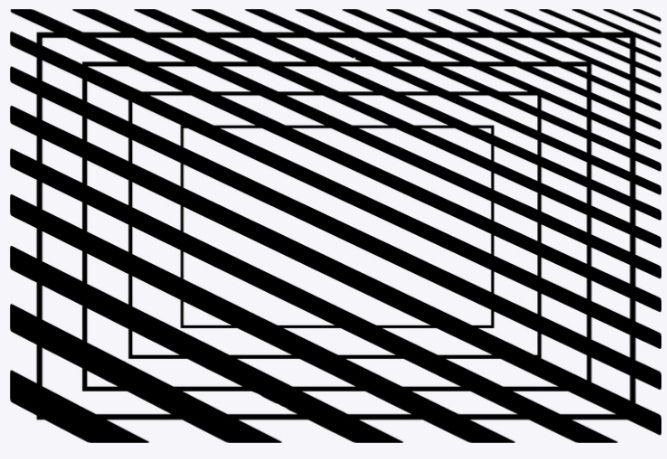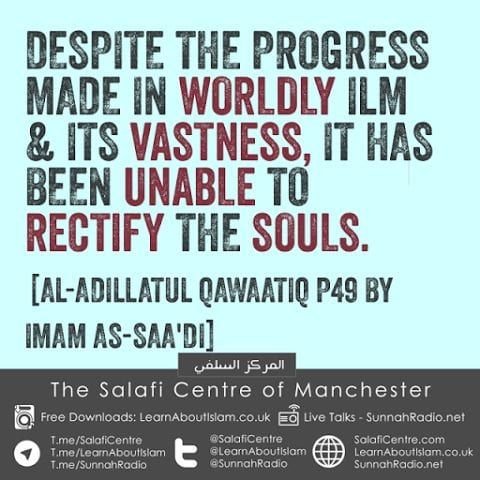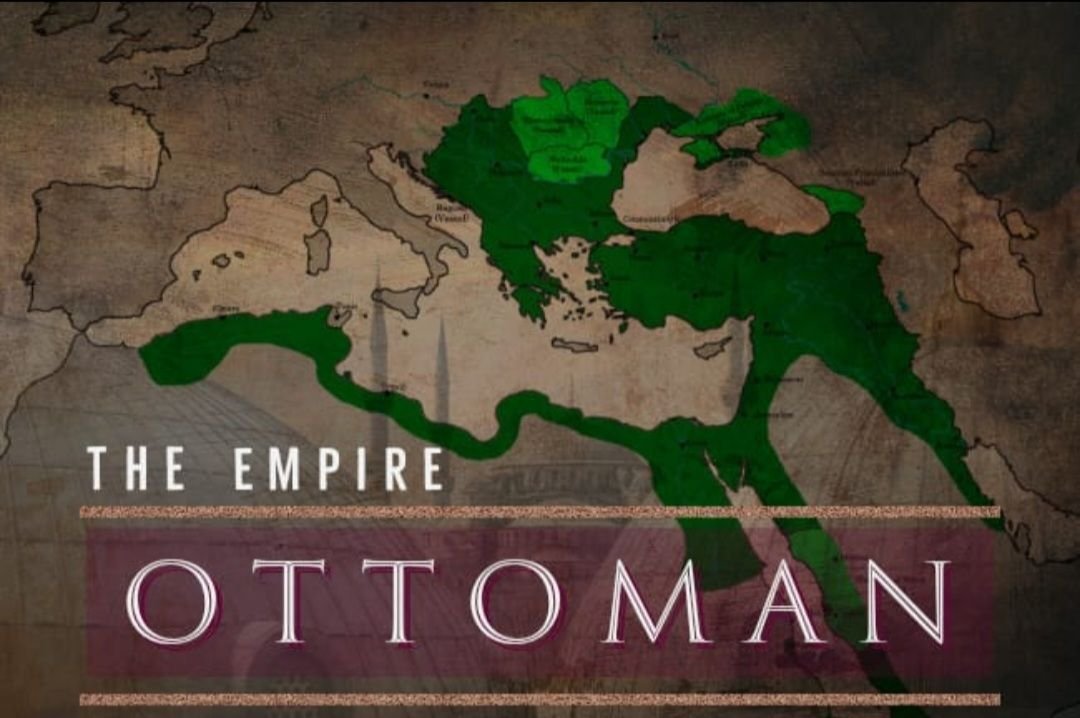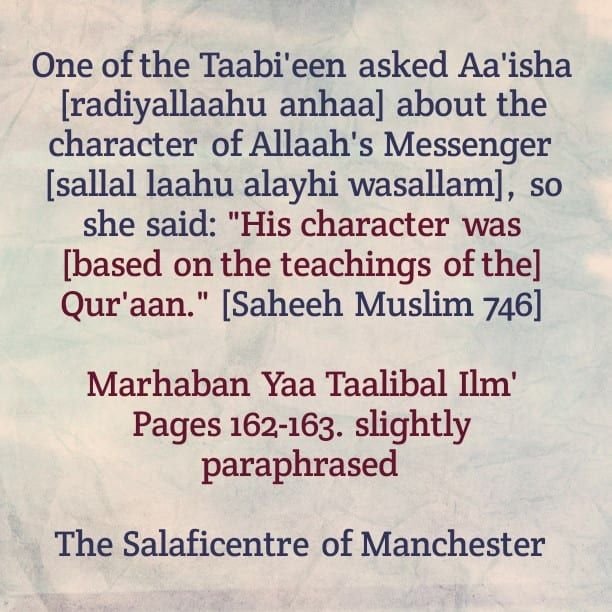In The Name of Allah, The Most Merciful, The Bestower of Mercy.
Some very important points not to overlook in discussions among some Muslims about Ath’thaqafah (culture and cultural reformation) in Africa and other places
Ibn Abbas, may Allah be pleased with him and his father, said that the Prophet, peace and blessings of Allah be upon him, said, “The most hated people to Allah are three: a person who deviates from right conduct [i.e. an evil doer] in the Haram [sanctuaries of Makkah and Madinah]; a person who seeks that the traditions of the pre-Islamic era Period of Ignorance should remain in Islam and a person who seeks to shed somebody’s blood without any right”.
Al-Allamah Zaid Bin Hadi Al-Mad’khali, may Allah have mercy upon him, said:
These three deeds are from the major sins. The first major sin is Al-Ilhad Fil Haram [i.e. deviating from right conduct in the sanctuaries of Makkah and Madinah]. Ilhad means to deviate from the truth [and enter into] falsehood, and supporting falsehood in order to obliterate the truth. Allah [The Mighty and Majestic] censured the Mulhideen Fil Haram [i.e. those who deviate from right conduction in the sanctuaries of Makkah and Madinah], saying: [وَمَن يُرِدۡ فِيهِ بِإِلۡحَادِۭ بِظُلۡمٍ۬ نُّذِقۡهُ مِنۡ عَذَابٍ أَلِيمٍ۬ – And whoever intends evil actions therein or to do wrong (i.e. practice polytheism and leave Islamic Monotheism), We shall make him taste a painful torment]. [Surah Al-Hajj. 25]
Allah promised them [a severe punishment] due to the mere fact they intend evil actions therein [i.e. in the sanctuaries of Makkah and Madinah], then how about perpetrating such deed! Indeed that would be a more severe sin, a more frightening state and a more severe punishment. This is a proof regarding the virtue of the sanctuaries of the Haram- that it is a sacred land chosen by Allah and He made it a place where virtuous acts of worship are performed, [such as] the Hajj which is one of the pillars of Islam. Allah gave this place virtues that cannot be enumerated, such as the increased reward attached to good deeds [performed in Makkah and Madinah] and gave this land virtue over all other lands of the earth.
The second major sin is committed by the person who wants that the pre-Islamic traditions should remain in Islam, as if he gives precedence to the pre-Islamic traditions – the evil customs that were followed during that period and the misguided deeds- over the Islamic practices, Iman, Ihsan, their virtue and virtue of the Sunnah. He is guilty of committing a major sin, and this includes giving precedence to Bidah over [the authentic] Sunnah that guides to the straight path.
The third major sin is to seek to shed somebody’s blood without any right – meaning: seeking to shed the blood of a Muslim without right and doing so based on oppression and animosity. Shedding the blood of a Muslim is a great crime, just as the Prophet said, “The extinction of the whole world is less significant to Allah than killing a Muslim [i.e. unlawfully]”. And he, peace and blessings of Allah be upon him, stated regarding the rights of the Ka’bah, “How great you are and how great is your sanctity! But the sanctity of a believer is greater than yours in the sight of Allah”. It is not permissible to transgress against the Muslims and the believers – males and females- in the sanctuaries of [Makkah and Madinah] or in other places due to the great sin and punishment which results from that. [1]
Al-Allamah Salih Al-Fawzaan, may Allah preserve him, said:
Indeed, (acts and beliefs) that are tantamount to ascribing partners to Allah have become rife in this Ummah due to the people being distanced from the Qur’an and the Sunnah, blindly following their forefathers without guidance, exaggerating the status of the dead people (i.e. either pious people or those whom they consider being pious), building (shrines and tombs over their) graves, and being ignorant of the (true) Islam which Allah commanded His Messenger [peace and blessings of Allah be upon him] to convey, as Umar Ibn Al-Khattab, may Allah be pleased with him, said: “Verily, the (firm) foundations of Islam will be destroyed one after the other when there arises in Islam a people who do not know what Jahiliyyah is [i.e. the acts and beliefs that were prevalent during the pre-Islamic era]; and due to the spread of Shubhah [doubts that are made to resemble the truth but are falsehood in reality] and stories that have misguided the majority of the people. One of these [Shubhah- doubts made to resemble the truth but are falsehood in reality] is what the people of Shirk of the past and those in this Ummah – at present – utilise as proof that they follow the path of their fathers and ancestors, and that they inherited this creed [i.e. polytheistic beliefs and practices] from them, as Allah [The Exalted] said:
وَكَذَٲلِكَ مَآ أَرۡسَلۡنَا مِن قَبۡلِكَ فِى قَرۡيَةٍ۬ مِّن نَّذِيرٍ إِلَّا قَالَ مُتۡرَفُوهَآ إِنَّا وَجَدۡنَآ ءَابَآءَنَا عَلَىٰٓ أُمَّةٍ۬ وَإِنَّا عَلَىٰٓ ءَاثَـٰرِهِم مُّقۡتَدُونَ
And similarly, We sent not a warner before you (O Muhammad) to any town (people) but the luxurious ones among them said: “We found our fathers following a certain way and religion, and we will indeed follow their footsteps”. [Az-Zukhruf Ayah 23]
Everyone unable to establish proof for his claim returns to this proof, even though it is useless proof that does not carry any weight in (sound) discussion because those ancestors they blindly follow were not upon (upright) guidance. Therefore, whoever (follows this path), it is not permissible to follow and take him as an example. Allah [The Most High] said: [أَوَلَوۡ كَانَ ءَابَآؤُهُمۡ لَا يَعۡلَمُونَ شَيۡـًٔ۬ا وَلَا يَہۡتَدُونَ – Even though their fathers had no knowledge whatsoever and no guidance]. [Al-Ma’idah. 104]
Allah [The Exalted] said: [أَوَلَوۡ كَانَ ءَابَآؤُهُمۡ لَا يَعۡقِلُونَ شَيۡـًٔ۬ا وَلَا يَهۡتَدُونَ – Even though their fathers did not understand anything nor were they guided?] [Al-Baqarah. 170]
Following ancestors is only praiseworthy if they were upon the truth. Allah [The Most High] said that Yusuf, peace be upon him, said:
وَٱتَّبَعۡتُ مِلَّةَ ءَابَآءِىٓ إِبۡرَٲهِيمَ وَإِسۡحَـٰقَ وَيَعۡقُوبَۚ مَا كَانَ لَنَآ أَن نُّشۡرِكَ بِٱللَّهِ مِن شَىۡءٍ۬ۚ ذَٲلِكَ مِن فَضۡلِ ٱللَّهِ عَلَيۡنَا وَعَلَى ٱلنَّاسِ وَلَـٰكِنَّ أَڪۡثَرَ ٱلنَّاسِ لَا يَشۡكُرُونَ
And I have followed the religion of my fathers, – Ibrahim (Abraham), Ishaque (Isaac), and Ya’qub (Jacob), and never could we attribute any partners whatsoever to Allah. This is from the Grace of Allah to us and to mankind, but most men thank not (i.e. they neither believe in Allah nor worship Him). [Surah Yusuf’ Ayah 38]
Allah [The Most High] said: [وَٱلَّذِينَ ءَامَنُواْ وَٱتَّبَعَتۡہُمۡ ذُرِّيَّتُہُم بِإِيمَـٰنٍ أَلۡحَقۡنَا بِہِمۡ – And those who believe and whose offspring follow them in Faith, to them shall We join their offspring [i.e. in paradise]. [Al-Tur. 21] [2]
Imam Ash-Shatibee, may Allah have mercy upon him, stated that customs are many different types- some are good and others are corrupt. The good customs are those that neither oppose the Shariah texts nor lead to losing an affair deemed to be beneficial by the Shariah, nor lead to an affair that the Shariah deems to be corrupt. As for the corrupt customs, they are those that oppose the evidence in the Shariah or some of the principles of the Shariah, such as some of the customary dealings in usury and those deeds deemed to be evil by the Shariah which the people engage in during occasions of happiness (or rejoicing, etc). [3]
Imam Abdul Azeez Bin Baaz, may Allah have mercy upon him, said: It is obligated on every Muslim that he does not depend on custom; rather he presents it to the pure Islamic legislation [to be judged], so whatever the Islamic legislation affirms is permissible and whatever it does not affirm is impermissible. The customs of the people are not proof to determine the lawfulness of anything. All the customs of the people in their countries or tribes must be presented to the Book of Allah and the Sunnah of His Messenger [peace and blessings of Allah be upon him] for judgment, so whatever Allah and His Messenger made permissible is permissible, and whatever they forbid, then it is obligatory to abandon it even if it is the custom of the people. [4]
Imam Muhammad Bin Salih Al-Uthaymeen, may Allah have mercy upon him, said: The customs cannot make something that is not legislated (in the divine revelation) as something legislated, because of Allah’s statement:
[وَلَيۡسَ ٱلۡبِرُّ بِأَن تَأۡتُواْ ٱلۡبُيُوتَ مِن ظُهُورِهَا – It is not Al-Birr (piety, righteousness, etc.) that you enter the houses from the back] [Surah Al-Baqarah. Ayah 189], even though it was something they took as their custom and considered it to be an act of righteousness. Whoever takes something as a custom and believes that it is an act of righteousness, then it should be presented to Allah’s divine legislation. [5]
Imam Muhammad Bin Salih Al-Uthaymeen, may Allah have mercy upon him, also said: Extremism about customs is stringent adherence to old customs and not diverting to what is better than them. If the customs are equal in benefit [i.e. the ones judged to be permissible by the divine legislation], then a person remaining upon what he is upon would be better than going along with the new (or emerging) customs. [6]
Imam Ibn Al-Qayyim, may Allah have mercy upon him, said: Hardship is only encountered by the one who abandons the Ma’loofaat and Awaa’id [i.e. those habitual things, deeds, practices, customs etc] for other than the sake of Allah. As for the one who abandons them truthfully and sincerely from the bottom of his heart- for the sake of Allah alone- then indeed he does not encounter any difficulty due to abandoning them except in the beginning, in order that he is tested as to whether he is truthful or untruthful in abandoning them? If he exercises a little bit of patience, its [i.e. that abandonment] will alternate into pleasure. Ibn Seereen said that he heard Shurayh swearing by Allah that “A servant does not abandon anything for the sake of Allah and finds a loss in that.” And their statement [i.e. the people of knowledge] that ‘whoever abandons something for the Sake of Allah, Allah will replace it with what is better.” This is true. This compensation is of different types and the best of that which a person is compensated with is: the desire and yearning to get close to Allah, seeking after Allah’s pleasure, love of Allah, and the heart granted-by way of it- tranquility, strength, enthusiasm, happiness and being pleased with its Lord [The Most High]. [7]
The Messenger, peace and blessings of Allah be upon him, said:
I have left you with two matters; you will not go astray as long as you hold fast to them: the Book of Allah and the Sunnah of His Prophet. [Al-Muwatta 2/899]
The Messenger, peace and blessings of Allah be upon him, said:
The devil has despaired of being worshipped in your land (i.e. The Arabian Peninsula); however, he is content to be obeyed in other matters that you may consider trivial in your actions. Therefore, be cautious. I have left witrh you that which, if you hold fast to it, you will never go astray: the Book of Allah and the Sunnah of His Prophet”. [Sahih at-Targhib 40]
Imam Ibn Al-Qayyim, may Allah have mercy upon him, said:
Whoever ponders upon the state of affairs of the world will find that every affair of rectification is due to Tawheed, singling out Allah in worship and obedience to His Messenger (Muhammad). And every evil in the world, trial, affliction, scarcity (in livelihood), being overpowered by an enemy and other than that is due to (our) opposition to the Messenger and the call to other than (the way of) Allah and His Messenger. Whoever truly ponders upon this and examines the state of affairs of the world- since its beginning and until the time Allah will take it away and those upon it- he will realise this affair regarding himself and others, in general and specific (circumstances). And there is no Might or Power except with Allah –The Most High, The Most Great. [Badaa’i Al-Fawa’id 3/525-526]
Imam Al-Lalaka’ee, may Allah have mercy upon him said:
Indeed, the most obligated matter to a person is to understand the creed of the religion, and what Allah has imposed on His servants regarding the comprehension of His oneness and attributes, the affirmation of (belief) in His Messengers (and what they have conveyed) through evidence and certainty, and the means to access its paths, using them for proofs and evidences. The mightiest of statements and the clearest evidence is the Book of Allah, the unequivocal truth, followed by the sayings of Allah’s Messenger, peace and blessings of Allah be upon him, and his righteous companions, then that which the pious predecessors agreed upon (consensus) and then adherence to all of them until the Day of Judgment, while avoiding Bidah and not lending an ear to it which has been initiated by the misguided ones. These inherited and followed advices, preserved and transmitted narrations (on creed, worship, methodology, manners, dealings etc) established paths of truth, well-known and evident proofs, and compelling arguments that were acted upon by the companions and their successors, as well as by both the distinguished men of piety and their folk among the Muslims, they believed in them as proof between them and Allah, the Lord of the worlds. Furthermore, those who emulate them among the guided Imams and those adherents who followed in their footsteps, striving to follow the path of the pious, are counted among those who are truly righteous and the good doers. Those who embark on such a path and consistently adhere to these proofs in accordance with the path of the Shariah will find security in their religion in both this life and the hereafter, and will hold firmly to the trustworthy handhold -(none has the right to be worshipped except Allah) – that will never break. [8]
Imam Al-Hasan al-Basri, may Allah have mercy on him, said:
I swear by the One (Allah) besides whom there is no deity worthy of worship but Him! The Sunnah is between the extremes of those who are excessive and those who are neglectful. Therefore, be patient upon it (the Sunnah) – may Allah have mercy on you- for the people of the Sunnah were the fewest among the people in the past, and they remained the fewest among those who remained. Neither did they go along with the excessive ones in their excesses nor with the proponents of Bidah in their Bidah, while remaining steadfast in their adherence to the Sunnah until they met their Lord. Thus, if Allah wills, let it be the same for you. [9]
Imam Muhammad Ibn Sirin, may Allah have mercy upon him, said:
They (the pious predecessors) held as their belief that the right path is what is based on the authentic narrations of the Prophet and his companions. [10]
Imam Umar Ibn Abdul Aziz, may Allah have mercy on him, stated:
Allah’s Messenger, peace and blessings of Allah be upon him, and the leaders who succeeded him (Abu Bakr, Umar, Uthman and Ali) established matters based on the pure revelation; adhering to them is an affirmation of Allah’s Book (the Qur’an), complete obedience to Allah, and strength in the religion ordained by Allah. No one has the authority to alter or change these practices, nor substitute them in opposition. Whoever follows these practices is rightly guided, and he who seeks assistance will be assisted (through them). Whoever opposes them and pursues a path other than that of the believers (the companions of the Prophet), Allah will leave him to what he has chosen and cast him into Hell, and what an evil destination. [11]
Imam Az-Zuhri, may Allah have mercy on him, said:
Those who preceded us among our scholars used to say: “Adhering to the Sunnah is salvation and that knowledge is rapidly taken away. The presence of knowledge is the stability of both the religion and worldly affairs, and with the loss of knowledge follows the loss of all of that (i.e. the emergence of corruption).” [12]
Imam Malik, may Allah have mercy upon him, said:
Whoever introduces a bidah in Islam and considers it to be good, he has implied that Muhammad, peace and blessings of Allah be upon him, has betrayed his mission. This is because Allah says:[اليوم أكملت لكم دينكم – “This day I have perfected your religion for you]. Therefore, anything that was not part of the religion at that time cannot be considered part of the religion today. [13]
Imam Ahmad, may Allah have mercy upon him, said:
Whoever becomes acquainted with the path of truth, it has been made easy for him to follow. And there is no proof for adhering to the path of Allah except through emulating the Messenger, peace be upon him, in his conduct, statements, and deeds.” [14]
Ibn Ataa, may Allah have mercy upon him, said:
Whoever commits himself to the etiquettes of the Sunnah, Allah will illuminate their heart with the light of knowledge, and there is no status more noble than following the beloved (Prophet) in His commands, actions, and manners.” [15]
Imam Ibn Abi Al-Izz, may Allah have mercy upon him, said:
Acts of worship are to be based on the authentic Sunnah, neither vain desires nor Bidah”. [16]
Imam Ibn Al-Qayyim, may Allah have mercy upon him, said:
Whoever adheres to the Book and the Sunnah, distancing himself from his vain desires and that of others, and turns to Allah with his heart, he is truthful and upon what is correct”. [17]
Shaikh Al-Islam Ibn Taymiyyah, may Allah have mercy upon him, said:
Whoever abandons the evidence will stray from the path, and there is no evidence except that which has been brought forth by the Messenger, peace and blessings of Allah be upon him”. [18]
Saudi King Abdul Azeez Bin Abdir-Rahman, may Allah have mercy upon him, said:
The foundation of the Islamic Creed is the Book of Allah, the Sunnah of His Messenger [peace and blessings of Allah be upon him] and that which the Sahabah were upon; then the pious predecessors after them, and then after them the four Imams of the Muslims- Imam Malik, Imam Shafi’i, Imam Ahmad and Imam Abu Hanifah. The creed of these people is one in the foundation of the religion and that is the three categories of Tawheed- the Oneness of Allah in His Lordship, the Oneness of Allah in that He (alone) has the right to be worshipped and His Oneness in His Names and Attributes”.
It is obligatory that we adhere to the Rope of Allah [i.e. the Qur’an, Sunnah etc] and that which the Salafus Saaleh [pious predecessors] were upon. If we adhere to this, we will be callers to Allah [i.e. Callers to Tawheed, the Sunnah and everything Allah has commanded], establish our affairs based on what Allah has revealed, speak and establish our economic affairs based on Taqwaa [i.e. fear of Allah by fulfilling everything Allah has commanded and keeping away from everything Allah has forbidden], so that Allah may show us kindness. However, if we do not do so and we are abandoned to our own selves, then we might become like what Ali [may Allah be pleased with him] that Allah said: [نَسُوا اللَّهَ فَنَسِيَهُمْ – They have forgotten Allah, so He has forgotten them]”. [Al-Anfal. 67]
O Muslims! It is obligatory that we hold onto the Rope of Allah (i.e. the Qur’an), follow the Sunnah of Allah’s Messenger Muhammad [peace and blessings of Allah be upon him], follow the guidance of the Messenger, act on Allah’s orders and keep away from what Allah has forbidden. Indeed, every speech that is not followed by action is false. There can be no rectification for the Muslims except through their unity upon singling out their Lord in [His Lordship, Names and Attributes and worshipping Him alone and associate none to Him as a partner in Worship]. And during every differing that leads to splitting and division, the Religion commands us to hold onto Allah’s Shariah, enjoin one another with the truth and patience, just as Allah [The Most High] commanded us in the Qur’an. We should be truly acquainted with our Lord and seek His Aid and Assistance. We do not fear except the (consequences of) our sins and it is obligated on the Muslims to follow Allah’s Religion and obey all that Allah has ordered, practically. In this is the (means of) rectifying their worldly affairs and the upright establishment of all their (other) affairs”.
Deeds that are in opposition to the Shariah can never be beneficial for anyone and all harm (is found) in following other than the foundation brought by our Prophet Muhammad [peace and blessings of Allah be upon him].
Indeed, the progress and advancement of the Muslims is among those affairs we (pursue) – we call to it by the will of Allah. (However), there cannot be advancement for the Muslims without a return to their religion, adherence to their sound creed and holding onto the Rope of Allah (i.e. the Qur’an and the Sunnah). The path towards this is clear and provided for the one who wants to follow it, and that is to single out Allah in worship – to be free from shirk and bidah- and act on that which the religion has commanded us, for indeed there is no benefit in speech if not (accompanied) by action. [19]
Saudi Imam Abdul Azeez Bin Baaz [may Allah have mercy upon him] said:
The latter part of this Muslim nation will not be rectified except through that which rectified its early part”, just as the people of knowledge and sound faith have stated. This is a statement of Imam Malik [may Allah have mercy upon him]- the well-known scholar of sound understanding and piety. Many other people of knowledge reported this statement during and after his era and they all agreed that the latter part of this Muslim nation will not be rectified except by way of that which rectified its earlier part. This means that the path followed by its earlier generations -the Book of Allah and the Sunnah of His noble Messenger – is what will rectify its future generations until the Day of Judgement. The one who wishes to rectify an Islamic society or any other society in this worldly life through other than the path and practical steps that rectified those who have preceded, then such a person is mistaken and has spoken untruth. There is no path other than the path (of the Messenger and his companions). The only path of rectification and uprightness is the one that was followed by our Prophet and his noble companions, and then those who follow them exactly in righteousness till this era of ours. And this necessitates:
-To give close attention to the Great Qur’an and the authentic Sunnah of Allah’s Messenger and convey them to the people.
-To acquire understanding of the Qur’an and authentic Sunnah and convey both of them with knowledge and clear-sightedness.
-To clarify the rulings found in the Qur’an and the Sunnah, including – first and foremost – the sound creed and the views that must be accepted by the Islamic society. On the other hand, one should clarify the forbidden creeds and views that are to be avoided.
-To clarify the boundaries of Halaal and Haraam that have been legislated by Allah and His Messenger, so that they are not violated. Allah [The Mighty and Majestic] said: [تِلْكَ حُدُودُ اللَّهِ فَلَا تَقْرَبُوهَا – These are the limits (set) by Allah, so approach them not] [Al-Baqarah. 187]
These limits are the unlawful deeds forbidden by Allah because they lead to sins. And just as Allah forbade mankind from going beyond the boundaries of Halaal and Haraam, He also legislated acts of worship and rulings in the religion. [20]
Imam Abu Shamah, may Allah have mercy upon him, said: “When the command to adhere to the Jamaa’ah (the main body) is (mentioned), then the intent behind it is to adhere to the truth, even if those who follow it are few and those who oppose it are numerous. That is because the truth is that which the first Jamaa’ah was upon- the Prophet [peace and blessings of Allah be upon him] and his companions [may Allah be pleased with them]- and one does not give consideration to the numerous people of falsehood”. [21]
Imam Abdul Azeez Bin Baaz, may Allah have mercy upon him, said:
Let every Muslim be careful of being deceived by the great numbers [of people upon such and such idea, view, belief, way of life, etc], whilst saying, “Indeed, the people have become such and such, and have become accustomed to such and such, so I am with them”. This is a great calamity, for indeed many people of the past were destroyed due to this [i.e. blindly following the majority]. Therefore, O sensible one! It is obligated on you to examine yourself; take account of yourself and adhere to the truth, even if the people abandon it. Beware of what Allaah has forbidden, even if the people do it, for indeed the truth is more worthy of being followed, just as Allaah [The Most High] said:
[وَإِنْ تُطِعْ أَكْثَرَ مَنْ فِي الْأَرْضِ يُضِلُّوكَ عَنْ سَبِيلِ اللَّه ِ -And if you obey most of those on earth, they will mislead you far away from Allah’s Path. [Surah Al An-aam Ayah 116]
And Allah [The Most High] said: [ وَمَآ أَڪۡثَرُ ٱلنَّاسِ وَلَوۡ حَرَصۡتَ بِمُؤۡمِنِينَ-And most of mankind will not believe even if you desire it eagerly]. [Surah Yusuf Ayah 103] [22]
Al-Allamah Muqbil Bin Hadi Al-Waadi’ee, may Allah have mercy upon him, said:
If numbers are the scale by way of which you judge, then the majority are mostly blameworthy; and if persuasive speech and eloquence is the scale by way of which you judge, then indeed Allah described the Munaafiqoon that they have tongues that utter beautiful speech. Allah said: [وَإِن يَقُولُواْ تَسۡمَعۡ لِقَوۡلِهِمۡ – And when they speak, you listen to their words]. [Al-Munaafiqoon. 4]
Therefore, what is given consideration is that one knows the people of truth by their characteristics – that they call to the Book of Allah and the Sunnah of Allah’s Messenger [peace and blessings of Allah be upon him, his family, and companions], and they neither desire reward from the people nor seeking to be thanked. [23]
Al-Allamah Salih Al-Fawzan, may Allah preserve him, stated:
A large number of people around a person is not proof that such a person is virtuous because some of the Prophets were only followed by a few people. “A Prophet will come on the day of judgment with a few followers and a Prophet will come with no followers”. [Bukhaari 5705]. Therefore, does this mean that such a Prophet is not virtuous? Absolutely not! A person does not look at the large number of people who are present because the Prophet [peace and blessings of Allah be upon him] said to Ali, “If Allah gives guidance to a single man through you, it is better for you than possessing red camels”. [Bukhaari 3009]
The Shaikh, may Allah preserve him, also stated, “Ahlus Sunnah Wal Jamaa’ah is not harmed by those who oppose them. If you are with them- all praise is due to Allah, they are pleased with this because indeed they want good for the people. If you oppose them, you cannot harm them and due to this the Messenger, peace and blessings of Allah be upon him, said, “There will not cease to be a group of my Ummah who will be manifest upon the truth- not harmed by those who forsake them until the command of Allah comes to pass (i.e. the day of judgment) whilst they are (still) upon that (truth)”. The one in opposition does not harm except himself. What is given consideration is not the great numbers; rather what is given consideration is to agree with the truth, even if a small number of people were upon it. And even if in some eras there is only one person (upon truth), then he is the one upon truth and he is the Jamaa’ah. The Jamaa’ah does not necessitate great numbers; rather the Jamaa’ah is what is in agreement with the truth – in agreement with the Book and the Sunnah, even if those upon it are few. However, if many come together and (upon) truth, then – all praise is due to Allah- this is strength. But if the majority oppose it (i.e. the truth), then we side with the truth even if only a few are upon it”. [24]
Al-Allamah Ahmad Bin Yahyah An-Najmi, may Allah have mercy upon him, said:
Know that the truth is that what (has been revealed by) Allah and (given to) His Messenger, peace and blessings of Allah be upon him in the Book and the Sunnah, even if its adherents and those who embrace it are few. What is conveyed in the Islamic legislation is the truth one is commanded to follow, even if the majority of the people free themselves from it and those who follow it are few. Allah stated:
ثُمَّ جَعَلْنَاكَ عَلَىٰ شَرِيعَةٍ مِنَ الْأَمْرِ فَاتَّبِعْهَا وَلَا تَتَّبِعْ أَهْوَاءَ الَّذِينَ لَا يَعْلَمُونَ
إِنَّهُمْ لَنْ يُغْنُوا عَنْكَ مِنَ اللَّهِ شَيْئًا ۚ وَإِنَّ الظَّالِمِينَ بَعْضُهُمْ أَوْلِيَاءُ بَعْضٍ ۖ وَاللَّهُ وَلِيُّ الْمُتَّقِينَ
Then We have put you (O Muhammad) on a plain way of (Our) commandment [like the one which We commanded Our Messengers before you (i.e. legal ways and laws of the Islamic Monotheism)]. So follow you that (Islamic Monotheism and its laws), and follow not the desires of those who know not. Verily, they can avail you nothing against Allah (if He wants to punish you). Verily, the Zalimun (polytheists, wrong-doers, etc.) are Auliya’ (protectors, helpers, etc.) to one another, but Allah is the Wali (Helper, Protector, etc.) of the Muttaqun (pious). [Al-Jaathiya. 18-19]
Therefore, O slave of Allah! Be eager to follow the truth, follow the straight path and the path of early pious predecessors- the companions of the Messenger, and do not feel lonely due to the small numbers of those who follow it and the large numbers of those who oppose it, for indeed Ibrahim, peace be upon him, was an Imaam on his own and with Allah lies all success. [25]
Read article by Shaikh Abu Khadeejah, may Allah preserve him:
https://abukhadeejah.com/state-of-ummah-causes-of-weakness-means-of-rectification-ebook/
We ask Allah:
اللَّهُمَّ إِنِّي أَسْأَلُكَ الثَّبَاتَ فِي الْأَمْرِ، وَالْعَزِيمَةَ عَلَى الرُّشْدِ
O Allah! Indeed, I ask You for steadfastness in this affair (regarding sound adherence to the religion) and firm resolve to adhere to the path of guidance. [26]
اللّهُـمَّ رَبَّ جِـبْرائيل ، وَميكـائيل ، وَإِسْـرافيل، فاطِـرَ السَّمواتِ وَالأَرْض ، عالـِمَ الغَيْـبِ وَالشَّهـادَةِ أَنْـتَ تَحْـكمُ بَيْـنَ عِبـادِكَ فيـما كانوا فيهِ يَخْتَلِفـون. اهدِنـي لِمـا اخْتُـلِفَ فيـهِ مِنَ الْحَـقِّ بِإِذْنِك ، إِنَّـكَ تَهْـدي مَنْ تَشـاءُ إِلى صِراطٍ مُسْتَقـيم
O Allah! Lord of Jibraa’eel, Meekaa’eel, and Israafeel, Creator of the heavens and the Earth, The Knower of the seen and the unseen. You judge between Your slaves regarding in that which they differ. Guide me to the truth regarding that in which there is differing, by Your Will. Verily, You guide whomever you will to the straight path. [27]
اللَّهُمَّ بِعِلْمِكَ الْغَيْبَ وَقُدْرَتِكَ عَلَى الْخَلْقِ أَحْيِنِي مَا عَلِمْتَ الْحَيَاةَ خَيْراً لِي وَتَوَفَّنِي إِذَا عَلِمْتَ الْوَفَاةَ خَيْراً لِي، اللَّهُمَّ إِنِّي أَسْأَلُكَ خَشْيَتَكَ فِي الْغَيْبِ وَالشَّهَادَةِ، وَأَسْأَلُكَ كَلِمَةَ الْحَقِّ فِي الرِّضَا وَالْغَضَبِ، وَأَسْأَلُكَ الْقَصْدَ فِي الْغِنَى وَالْفَقْرِ، وَأَسْأَلُكَ نَعِيماً لَا يَنْفَذُ، وَأَسْأَلُكَ قُرَّةَ عَيْنٍ لَا تَنْقَطِعُ، وَأَسْأَلُكَ الرِّضِا بَعْدَ الْقَضَاءِ، وَأَسْأَلُكَ بَرْدَ الْعَيْشِ بَعْدَ الْمَوْتِ، وَأَسْأَلُكَ لَذَّةَ النَّظَرِ إِلَى وَجْهِكَ وَالشَّوْقَ إِلَى لِقَائِكَ فِي غَيْرِ ضَرَّاءَ مُضِرَّةٍ وَلَا فِتْنَةٍ مُضِلَّةٍ، اللَّهُمَّ زَيِّنَّا بِزِينَةِ الْإِيمَانِ
وَاجْعَلْنَا هُدَاةً مُهْتَدِينَ
O Allah! By Your Knowledge of the unseen and by Your Power over creation, let me live if life is good for me, and let me die if death is good for me; O Allah! I ask You to grant me (the blessing of having) fear of You in private and public, and I ask You (to make me utter) a statement of truth in times of contentment and anger, and I ask You for moderation when in a state of wealth and poverty, and I ask you for blessings that never ceases, and I ask You for the coolness of my eye that never ends, and I ask You (to make me pleased) after (Your) decree; and I ask You for a life of (ease, comfort, tranquillity, etc) after death; I ask You for the delight of looking at Your Face (i.e. in the Hereafter) and yearning to meet You without any harm and misleading trials (coming upon me). O Allah! Adorn us with the adornment of Iman, and make us (from those who are) guided and guiding (others). [29]
اللَّهُمَّ أَصْلِحْ لِي دِينِي الَّذِي هُوَ عِصْمَةُ أَمْرِي
وَأَصْلِحْ لِي دُنْيَايَ الَّتِي فِيهَا مَعَاشِي
وَأَصْلِحْ لِي آخِرَتِي الَّتِي فِيهَا مَعَادِي
وَاجْعَلِ الْحَيَاةَ زِيَادَةً لِي فِي كُلِّ خَيْرٍ
وَاجْعَلِ الْمَوْتَ رَاحَةً لِي مِنْ كُلِّ شَرٍّ
O Allah! Rectify my religion for me, which is the safeguard of my affairs; rectify my worldly [affairs], wherein is my livelihood; and rectify my Afterlife to which is my return; and make life for me [as a means of] increase in every good and make death for me as a rest from every evil. [29]
[ 1]: at-Taleeqaat Al-Maleehah Alaa Silsilah Al-Ahaadeeth as-Saheehah. 1/429-430
[2] Muhaadaraat Fil Aqeedah Wad-Da’wah’ page 18-20
[3]Al-Muwaafaqaat 2/283
[4]Majmoo Al-Fataawas 6/510
[5]Tafseer Surah Al-Baqarah 2/299
[6]Majmoo Al-Fataawaa 7/7
[7] Al-Fawaa’id page 166
[8] Sharh Usul Al-Ittiqad Ahl As-Sunnah Wal Jama’ah 1/7
[9] Ighatha Al-Lahfan 1/70
[10] Sunan Ad-Darimi 1/66
[11] Ighatha Al-Lahfan 1/159
[12] Al-Darimi 1/5
[13] Al-I’tisam 1/28
[14] Madarij As-Salikin 2/486
[15] Madarij As-Salikin 2/486
[16] Majmoo Al-Fatawa 4/170 (Ibn Taymiyyah)
[17] Madarij As-Salikin 2/487
[18] Miftah Dar As-Sa’adah 1/85
[19] An Excerpt from “Haqeeqah Manhaj Al-Mamlakah Al-Arabiyyah As-Su’oodiyyah”. Pages 26-33]
[20] An Excerpt from ‘Awaamil Islaah Al-Mujtama’ah pages 1-2]
[21] Al-Baa’ith Alaa Inkaaril Bid’ah Wal-Hawaadith’ page 22
[22] An Excerpt from ‘Majmoo Al-Fataawaa 12/ 412
[23] قم المعاند – 2/547
[24] An Excerpt from ( لمحة عن الفرق الضالة )– pages 14 -15
[25] An Excerpt from Irshaad As-Saaree Fee Sharh Sunnah Lil-Barbahaaree page: 47
[26] Irwaa al-Ghaleel 1/115
[27] Saheeh Muslim 770
[28] As-Saheehah Number 1301
[29] Sahih Muslim. 2720]












